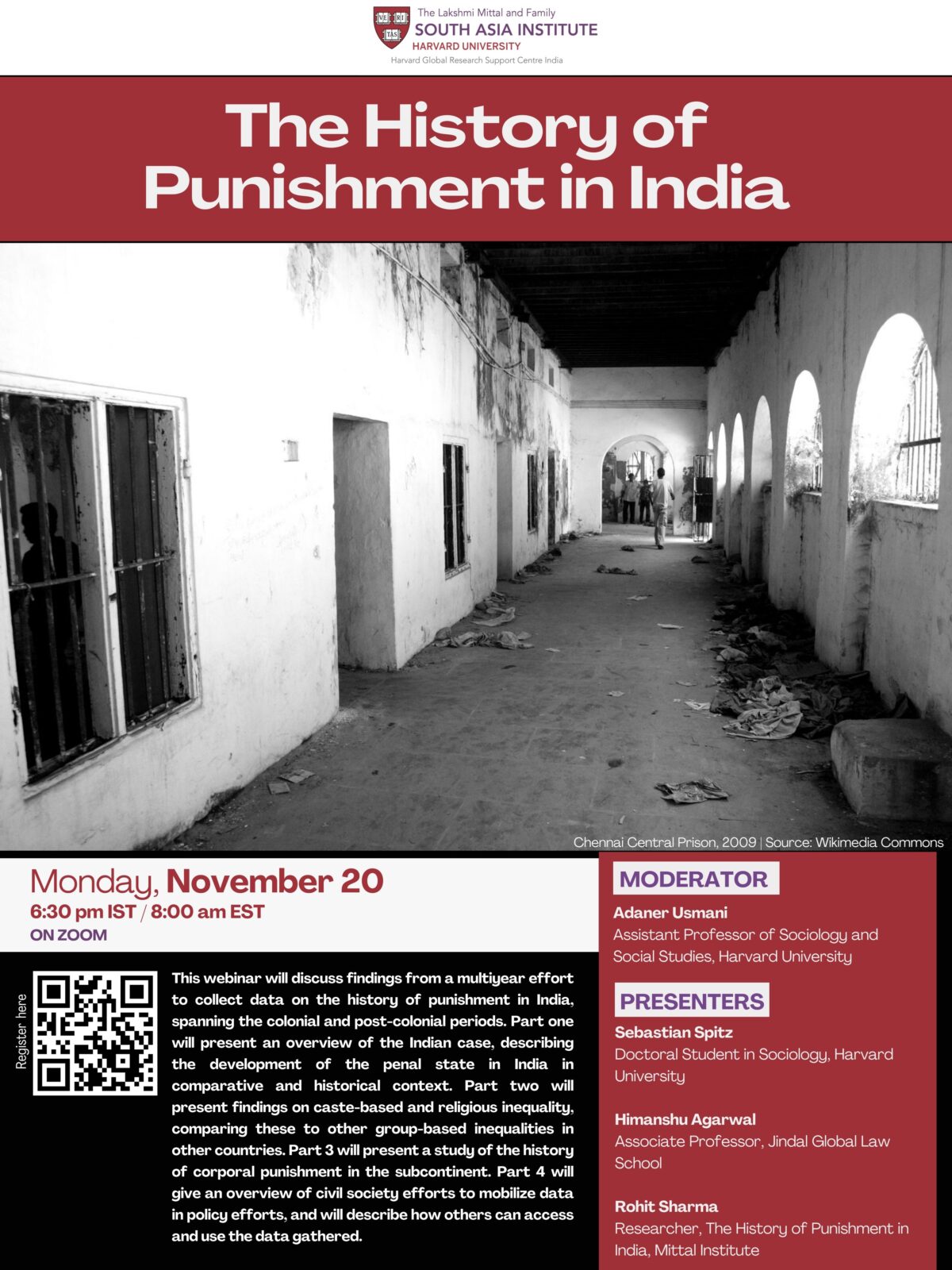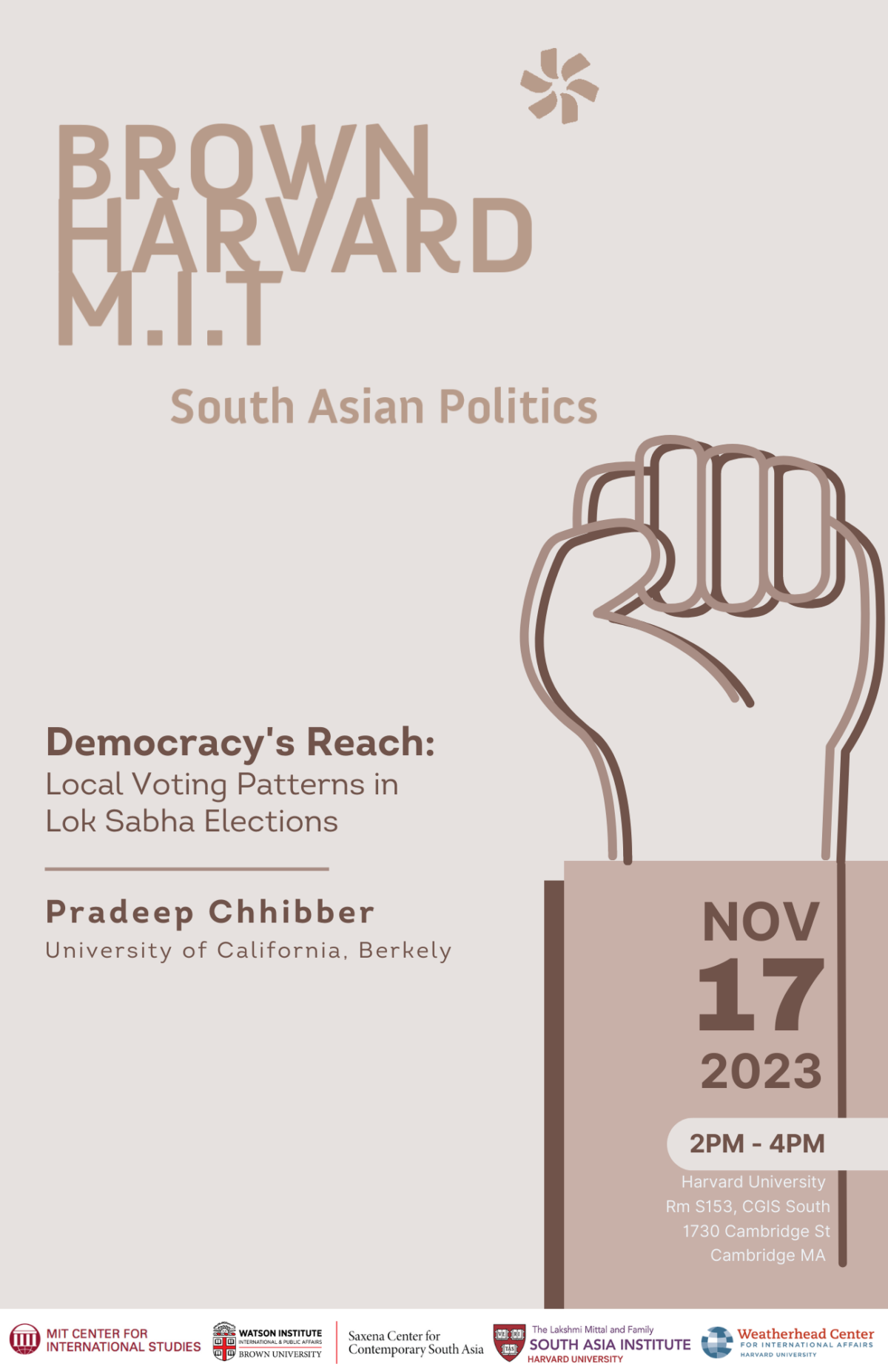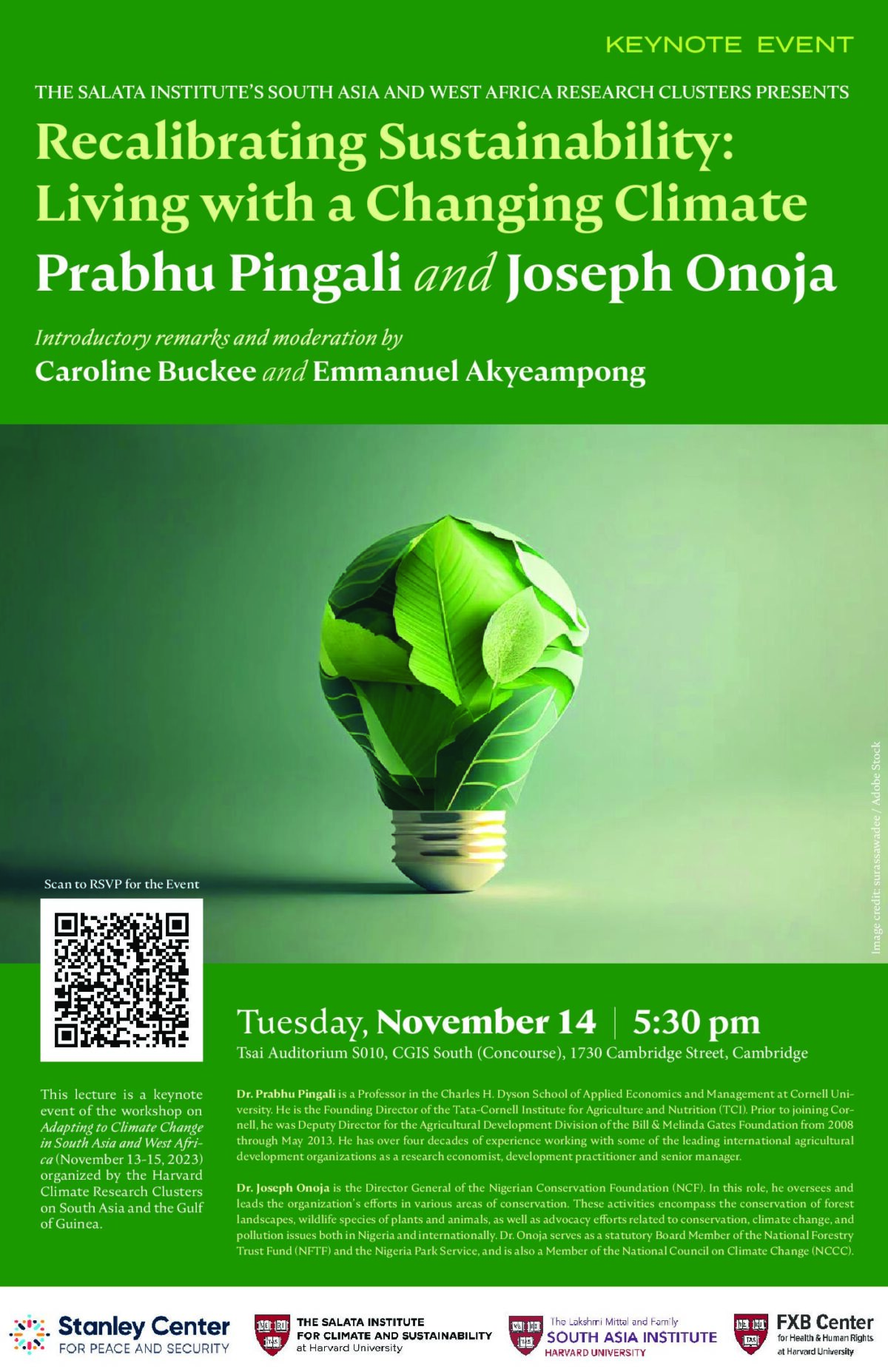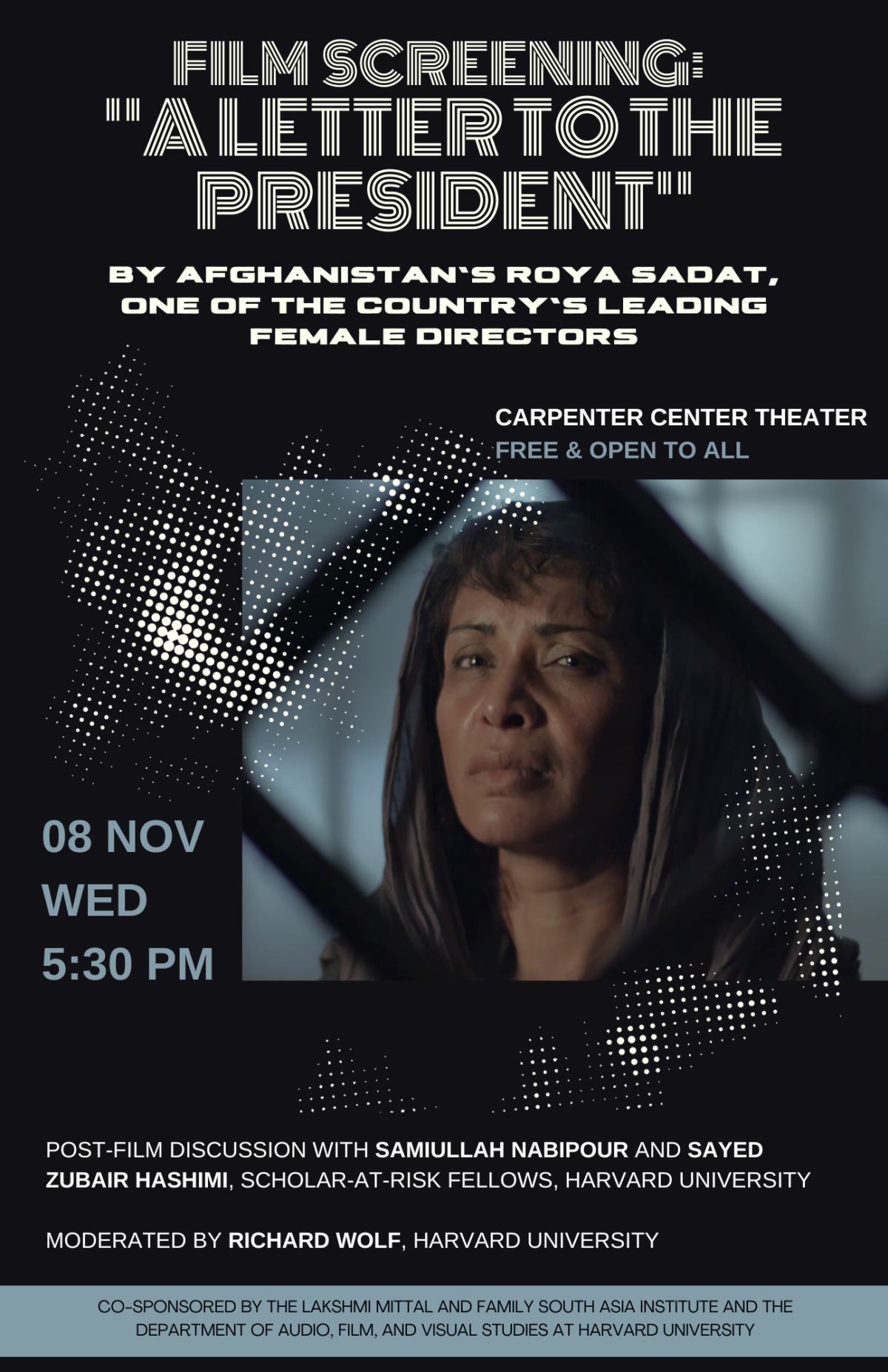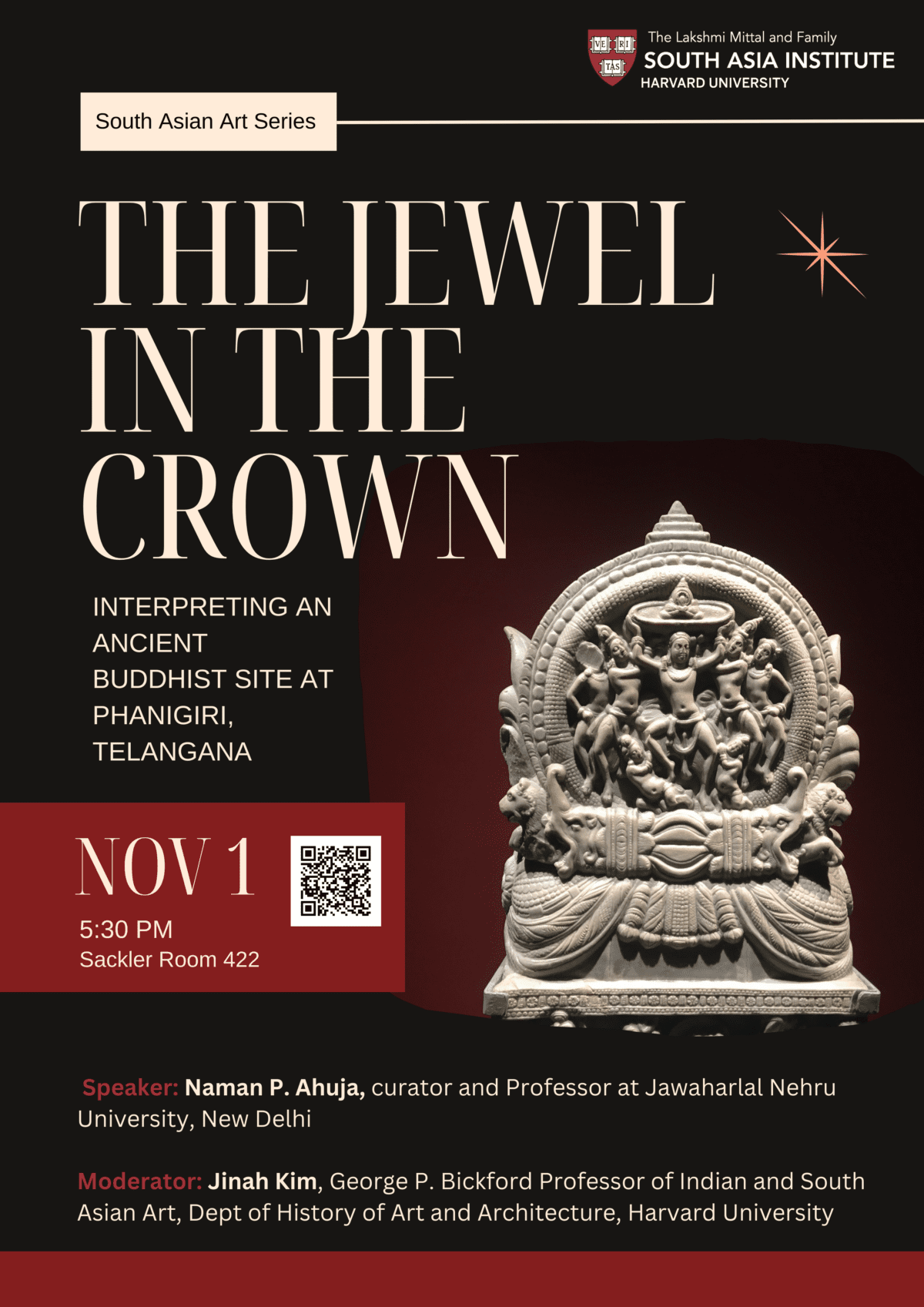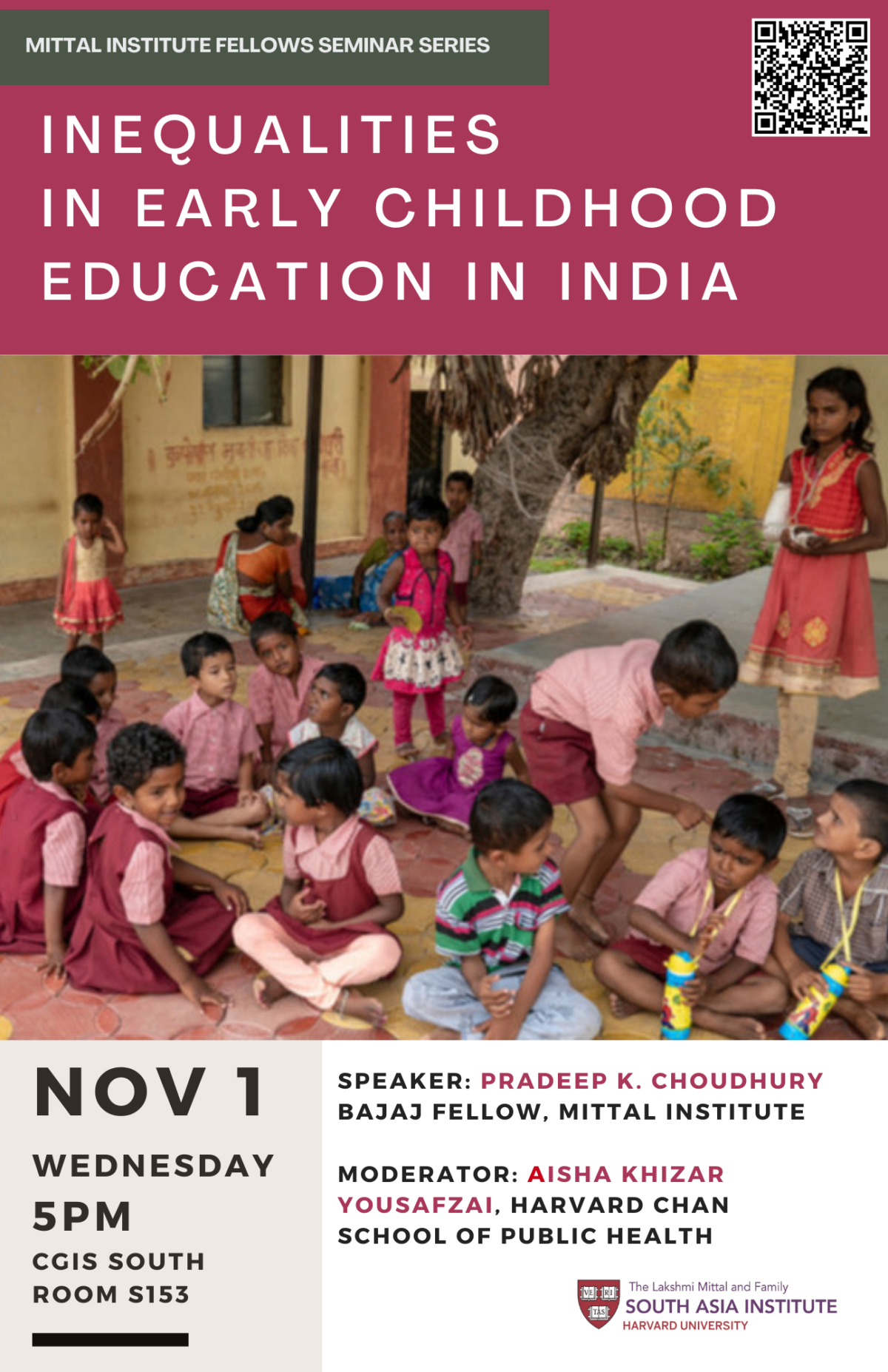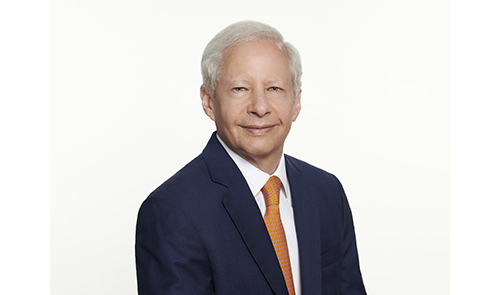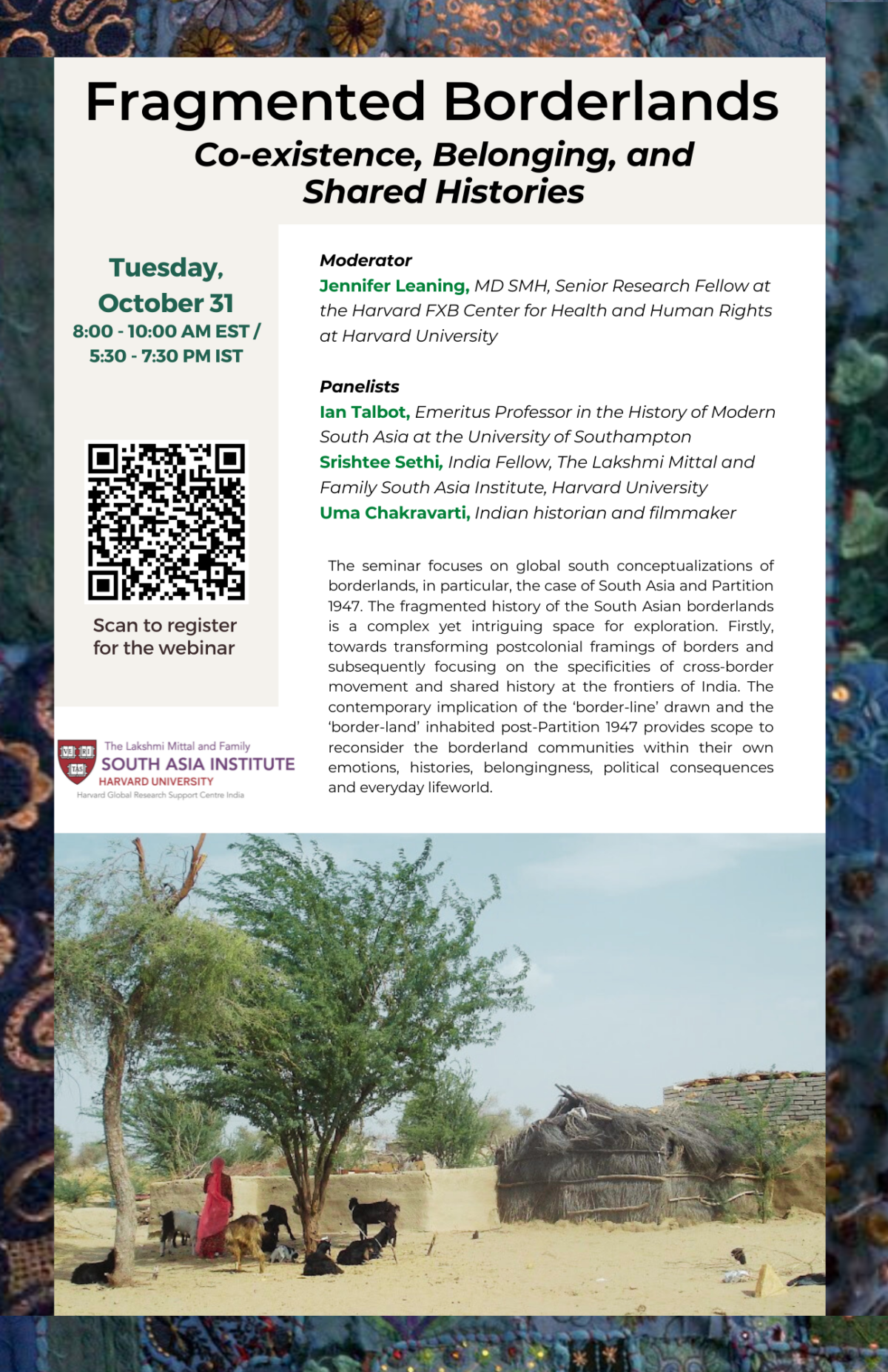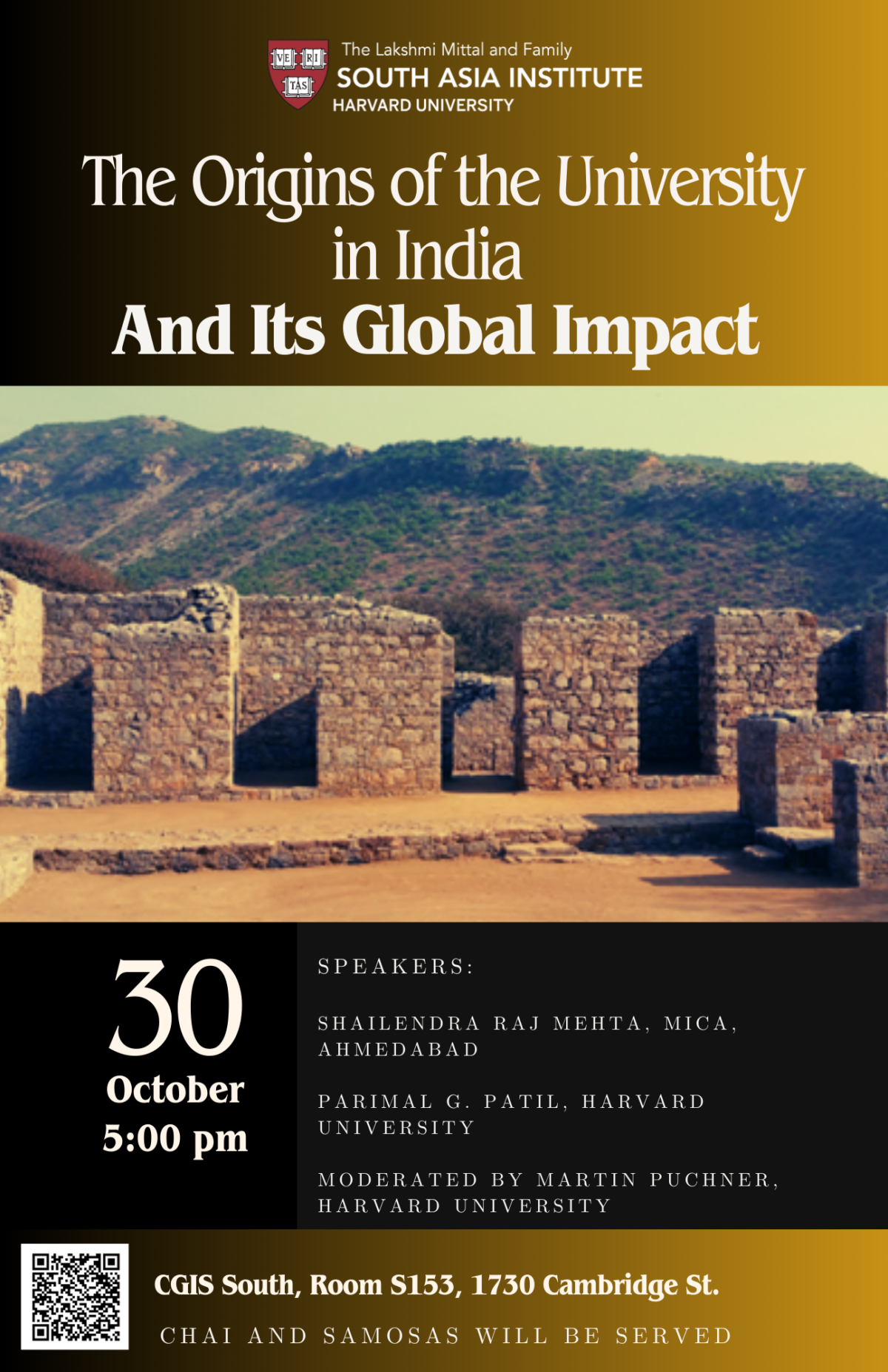WHEN
Tue, Nov 28, 2023 at 05:30pm, ET
Join us to learn more about the Seed for Change (SFC) student competition, which provides monetary prizes to bold, creative ideas that have the potential for widespread impact in India. The SFC competition aims to develop a vibrant ecosystem for innovation and entrepreneurship by supporting interdisciplinary student projects that could positively impact social, economic, and environmental […]
More InfoWHEN
Mon, Nov 20, 2023 at 08:00am, ET
This webinar will discuss findings from four years of archival research into the history of punishment in India, spanning the colonial and post-colonial periods.
More InfoWHEN
Fri, Nov 17, 2023 at 02:00pm, ET
Pradeep Chhibber is the Professor and Indo-American Community Chair in India Studies at University of California, Berkely. Chhibber studies the politics of India, political parties and party systems. His recent research is on the influence of ideology on party system change, religion and politics, elections and parties, and the politics of development in India.
More InfoWHEN
Tue, Nov 14, 2023 at 05:30pm, ET
VENUE
Tsai Auditorium S010, CGIS South (Concourse), 1730 Cambridge Street, Cambridge
This lecture is a keynote event of the workshop on ‘Adapting to Climate Change in South Asia and West Africa’ organized by the Harvard Climate Research Clusters on the Gulf of Guinea (Climate Adaptation in the Gulf of Guinea) and South Asia (Climate Adaptation in South Asia), in collaboration with the Lakshmi Mittal and Family South Asia Institute, the Stanley Center for Peace and Security, the FXB Center for Health and Human Rights, and the Salata Institute at Harvard University.
More InfoWHEN
Wed, Nov 8, 2023 at 05:30pm, ET
VENUE
Carpenter Center Theater (24 Quincy Street)
Released in 2017 by Afghanistan’s Roya Sadat, one of the country’s leading female directors, “A Letter to the President” explores the difficulty Afghan women face when pursuing justice, and is a testament to the country’s once-flourishing cinema scene in the period between Taliban rule.
More InfoWHEN
Wed, Nov 1, 2023 at 05:30pm, ET
Prof. Ahuja will take the audience through the astounding quality of the sculpture at Phanigiri and focus on one piece in particular: a stele that shows Siddhartha sacrificing his turban, the mark of his inheritance.
More InfoWHEN
Wed, Nov 1, 2023 at 05:00pm, ET
Evidence on how exposure to early childhood education (ECE) has a sustained effect on Human Capital is inconclusive, particularly in low and middle income countries. This study examines two specific issues in the context of India: (a) to analyse the regional and socioeconomic inequalities in access to and investment in early childhood education and how a household’s socioeconomic position explains such inequalities, (b) to estimate the effect of exposure to early childhood education on children’s later learning outcomes, and how the type and duration of such exposure impact differently.
More InfoThe webinar aims to focus on the global south conceptualisations of borderlands in the particular case of South Asia post the partition of 1947. The fragmented history of the South Asian borderlands is a complex yet intriguing space for exploration.
More InfoWHEN
Mon, Oct 30, 2023 at 05:00pm, ET
VENUE
CGIS South, Room S153
For a period of 1800 years from 600 BCE to 1200 CE, India dominated global higher education, with at least seven major centers – Taxila, Nalanda, Valabhi, Vikramshila, Odantapuri, Jagaddala, and Somapura, spanning the breadth of the Indian […]
More Info
